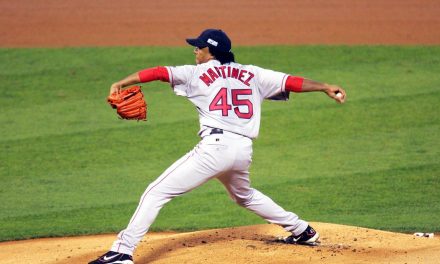Add Adam Ottavino to the list of potential closers who are now elsewhere. Even worse, Ottavino is leaving Colorado and heading to the Bronx. The list is now significantly smaller than the one we began the offseason with. Along with Ottavino; Andrew Miller, Joakim Soria, Cody Allen, Jeurys Familia and Kelvin Herrera are all signed. Kimbrel is likely out of the Sox’ current plans, and the in-house closer candidates are limited. However, there is still a name on the free agent market that does entice me. The move is definitely one I could see the Red Sox making now.
A familiar face in the American League East, Brad Brach made his way into a playoff race last season with the Atlanta Braves. He had struggled in 2018 with Baltimore up to the point of the trade. However, he kicked it into another gear in ATL. His BB/9 came down an entire walk after his trade, as he seemed to find the control that made him dominant in years past.
Between 2013 and 2017, Brach averaged an ERA under three, with four of those five years coming in the gruelling American League East. He’s coming off a solid renaissance in Atlanta, but still won’t command a large salary at all. He’s a year younger than Ottavino, but he also doesn’t have one season as dominant as Ottavino’s 2018. However, the large body of work would say that Brach could be just as effective.

Ottavino has a career 3.68 ERA and a nice, round WHIP of 1.30 over 366 games. Brad Brach meanwhile has a 3.08 ERA and a WHIP of 1.27 over 424 games. Ottavino reportedly had tons of suitors, so why isn’t the market for Brach the same? Brach has better numbers, over a longer period of time as well. He also has postseason experience (1.80 ERA in 5 games) and has 30 saves over the last two seasons.
For whatever reason, he hasn’t had a tenth of the market that Ottavino had. The Red Sox should capitalize on that. A one or a two year deal with a mutual option would benefit both sides short-term. The money wouldn’t be much more than the 5.1 million he earned in 2018.
He’s a closer that costs around 10 million dollars, and has no long-term economic impacts on the payroll. That should be one that the Red Sox should have jumped all over months ago.







